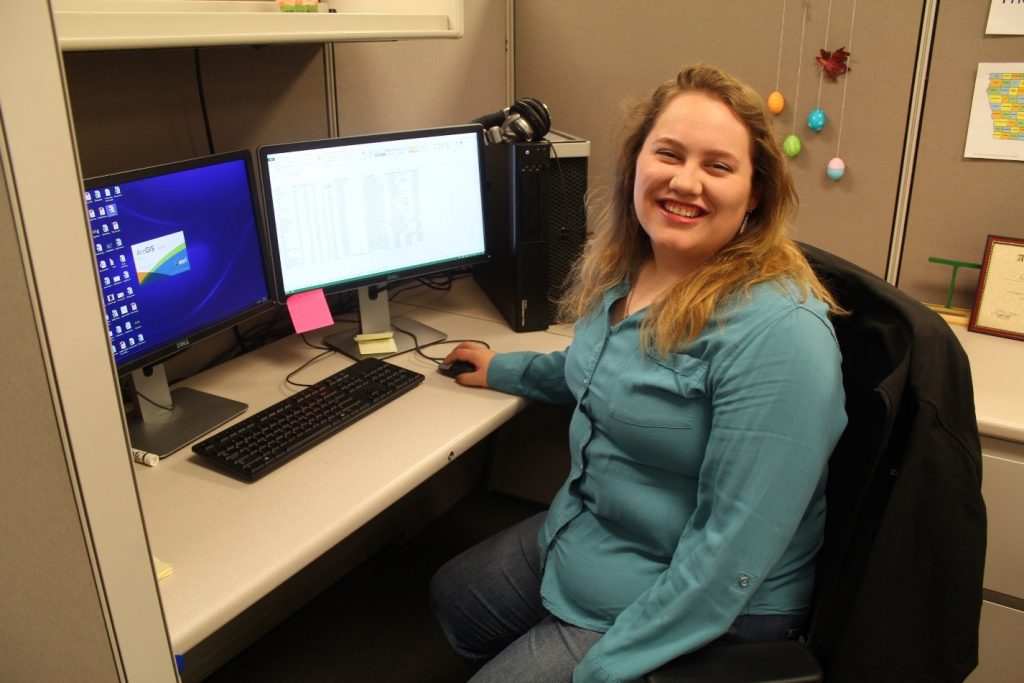InTrans / May 24, 2016
Ellen Nightingale becomes 2016 – 2017 Trinect Fellow

Ellen Nightingale is going back to elementary school.
The Trinect project, which is funded by the National Science Foundation’s STEM-C Partnerships, is working with Iowa State University engineering graduate students to address a critical need: elementary teachers who have the confidence and ability to engage their students in essential scientific and engineering concepts.
Nightingale, an Iowa State master’s student studying traffic safety under Peter Savolainen at ISU’s Institute for Transportation, believes she is ready for the challenge.
Nightingale will spend one full day every week throughout the upcoming school year in Studebaker Elementary School in Des Moines under the supervision of Jeff Wenke. She will serve as a “resident scientist/engineer” in Wenke’s fourth grade classroom.
“I am so excited to watch the students make connections as they learn,” says Nightingale.
She admits being excited for those “oh” moments—when a student transitions from not understanding a concept to making a realization.
“If the student is not challenged, there is no ‘oh’ moment, as they already know the concepts before they began. If the student is challenged too much, a negative effect of being disheartened and discouraged can cause a student to dislike the topic. I need to strike somewhere in the middle,” says Nightingale. “As an engineer who likes to solve problems, I look forward to finding this balance.”
Without a doubt, this problem solving, while different than calculating an algorithm or developing a data-mining script, will help to develop her communication skills, which she will need in her future career.
“My future projects will require working with large stakeholders who are generally non-engineers and the general public. I need to be able to effectively communicate engineering concepts to people without engineering degrees, and I need to work alongside individuals with different backgrounds. I believe my involvement in Trinect will help develop both of those skills.”
When applying for the Trinect Fellowship program, foremost Nightingale wanted to shape the lives of the students and the future generation of students who will use the engineering education tools her Trinect cluster will develop.
“I do not expect every student in class to grow up to be a civil engineer, but concepts like teamwork and synthesizing math and physics lessons into real-world applications are useful to all students, no matter their career aspirations.”
For Nightingale, her introduction to engineering in high school lead to where she is today, and so she strongly believes in the potential of educational outreach initiatives like Trinect.
Nightingale plans to graduate from Iowa State University with a master’s degree in May 2017 and work for a private engineering firm. She hopes to always remain an advocate for corporate sponsorship of engineering educational programs.